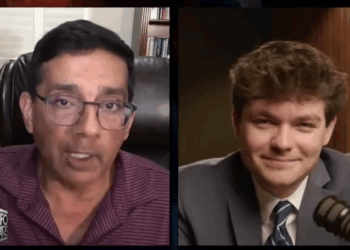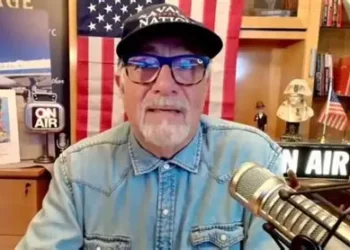The Rise of Lawfare
Lawfare, the use of legal systems and proceedings as a means of political warfare, has increasingly become a tool in the American political arena. This strategy involves leveraging legal actions to hinder or discredit political opponents, often overshadowing genuine legal concerns with politically motivated maneuvers. In recent months, this tactic has been prominently used against former President Donald Trump, illustrating how legal battles can be wielded to obstruct and influence the electoral process.
Trump’s Legal Battles: A Case Study
The current legal challenges facing Donald Trump underscore the broader use of lawfare in modern politics. As Trump contends with multiple criminal and civil cases, these legal battles have been portrayed by some as politically driven attempts to weaken his 2024 presidential bid. For example, recent developments in the Fulton County case led by District Attorney Fani Willis have sparked significant controversy. Trump and his allies argue that these charges are part of a broader effort to derail his campaign and undermine his political influence.
Jeff Clark, a key figure in Trump’s legal team, appeared on Friday’s Warroom and talked about the dismissal of several charges against Trump, suggesting that these legal maneuvers are not merely about justice but are strategically aimed at impacting Trump’s electoral prospects. Clark remarked, "Judge McAfee dismissed three counts from the indictment… Trump benefited from these dismissals,” illustrating how legal victories can simultaneously serve political and legal purposes.
Lawfare as a Tool of Voter Obstruction
The strategic use of lawfare can effectively serve as a form of voter obstruction. By prolonging legal proceedings and intensifying media coverage, opponents can create a narrative that distracts from the core issues of a campaign and diminishes a candidate’s public appeal. In Trump’s case, the ongoing legal drama has not only diverted public attention but also may have a tangible effect on voter sentiment and mobilization.
Critics argue that such tactics are designed to stymie Trump’s campaign efforts by keeping him embroiled in legal battles that drain resources and shift focus away from policy discussions. As Clark noted, "This case is on a very slow boat and it’s not going to be resolved until probably well into 2025,” emphasizing how extended legal proceedings can keep a candidate preoccupied and potentially erode their campaign momentum.
The Broader Implications of Lawfare
The implications of lawfare extend beyond individual cases. When legal systems are manipulated for political gain, it raises concerns about the integrity of democratic processes and the potential for legal mechanisms to be weaponized against political figures. The Trump case exemplifies how lawfare can be used to not only challenge a candidate’s eligibility but also to reshape the political landscape.
As the 2024 election approaches, the use of lawfare against Trump serves as a stark reminder of the need for vigilance regarding the fairness and neutrality of legal proceedings. Ensuring that legal actions are grounded in genuine legal issues rather than political motives is crucial for maintaining democratic integrity and upholding the principles of justice.
What Lies Ahead
The strategic use of lawfare as a political tool to obstruct and discredit candidates like Donald Trump highlights the evolving tactics in modern political conflicts. By understanding and addressing these issues, voters and policymakers can better navigate the complexities of the electoral process and safeguard the principles of fair and impartial justice.
For more context, watch this Friday segment featuring Jeff Clark:




